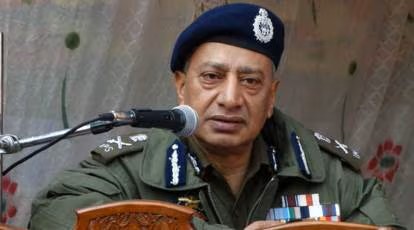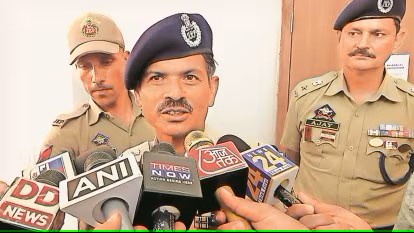Rashmi Ranjan Swain, the Director General of Police (DGP) of Jammu and Kashmir, has sparked political controversy with his recent statements accusing both mainstream and regional political parties of aiding Pakistan’s “infiltration into civil society.” Swain, a 1991-batch IPS officer from Odisha, has spent much of his career on central deputation but has also held several sensitive positions in J&K, including Senior Superintendent of Police in Srinagar and Jammu, and roles in the J&K Vigilance Commission (now the Anti-Corruption Bureau).
 Swain was brought back to J&K in 2020, a year after the abrogation of Article 370, to serve as the Additional Director General of the Criminal Investigation Department (CID). In this role, he reported directly to Lieutenant Governor Manoj Sinha and the Union Home Ministry. Swain’s tenure as intelligence chief is credited with curbing separatist and militant activities and cracking down on corruption within the police force, aligning with the central government’s efforts to maintain stability in the region post-Article 370.
Swain was brought back to J&K in 2020, a year after the abrogation of Article 370, to serve as the Additional Director General of the Criminal Investigation Department (CID). In this role, he reported directly to Lieutenant Governor Manoj Sinha and the Union Home Ministry. Swain’s tenure as intelligence chief is credited with curbing separatist and militant activities and cracking down on corruption within the police force, aligning with the central government’s efforts to maintain stability in the region post-Article 370.
However, Swain has faced criticism for his hardline policies, including targeting militant families and associates by restricting passport issuances and job verifications. He has also been accused of suppressing dissent by placing civil society members, activists, and journalists on Look Out Circular notices to prevent them from traveling abroad.
Swain is also believed to have played a significant role in the political landscape of J&K, influencing the termination of government employees with alleged separatist links and facilitating political shifts post-Article 370. His actions have strained relationships with some top police officers, including his predecessor Dilbagh Singh. When Singh retired in October 2023, Swain was appointed as the in-charge police chief while continuing as intelligence chief, highlighting his pivotal role in the government’s strategy for the region.




